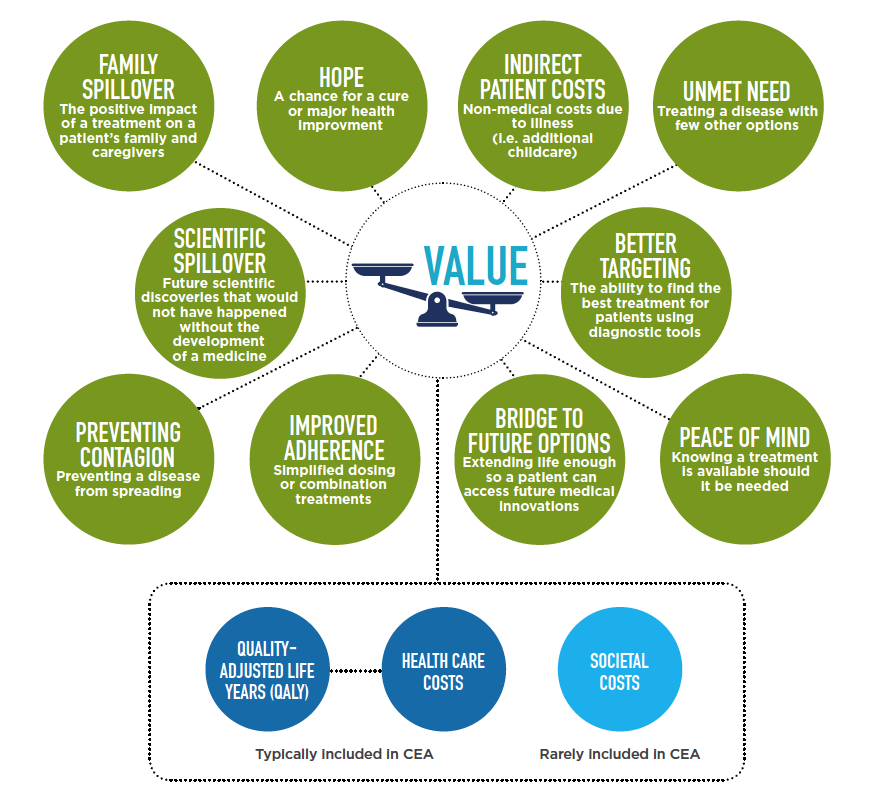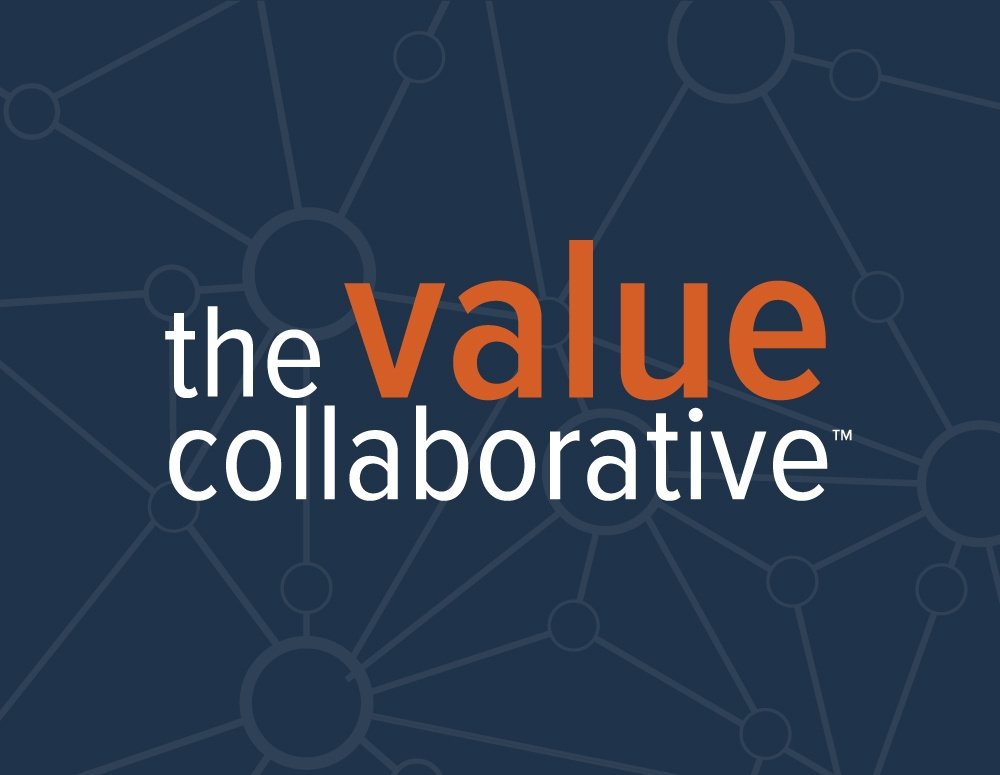
Value assessments are an important tool in moving toward better, more affordable health care. When it comes to assessing the value of medicines, we need approaches that reflect what matters to patients, support doctor-patient decision making and are based on rigorous science. Some of the key elements that reflect patient preferences include:
- Family spillover: The positive impact of a treatment on a patient’s family and caregivers
- Hope: A chance for a cure or a major improvement
- Indirect patient costs: Non-medical costs due to illness (e.g. additional childcare)
- Unmet need: Treating a disease with few other options

Unfortunately, conventional value assessments, also known as health technology assessments (HTAs), typically only account for health care costs, and controversial metrics like the quality-adjusted-life-year (QALY). These assessments, which includes assessments conducted by the Institute for Clinical and Economic Review (ICER) as well as many foreign countries that impose price controls on medicines, take a limited perspective on value, failing to account for outcomes and costs that matter to patients as well as important differences among them.
Just last month, ICER launched an initiative to determine how they can apply traditional methods of value assessment to potentially curative therapies. These life-saving and life-changing medicines often address significant unmet medical needs, and lead to significant future cost savings. ICER is proposing to work with HTA agencies from two foreign countries that set artificially low medicine prices and severely restrict patient access to innovative medicines, compared to American patients.
We have serious concerns with this initiative. The scope of ICER’s initiative and what therapies it will apply to is unclear. The end goal is to set a single value-based price for each medicine. Any single value-based price that favors QALYs over other elements of value that matter to patients will inevitably harm patient access and chill innovation. Conventional, QALY-based methods are also ill-suited for the assessment of orphan and rare diseases, which many curative therapies aim to treat.
We also strongly recommend that ICER find a way to meaningfully account for the full range of outcomes and costs that matter to patients when they assess not only curative therapies, but all therapies. Methods for value assessment need to keep up with the rapid evolution of 21st century medicine. And in the 21st century, the outcomes that matter to patients should matter to everyone.
Learn more at
PhRMA.org/value-collaborative.





